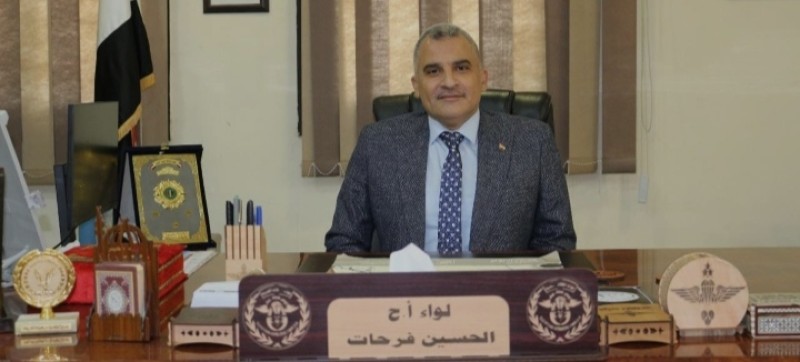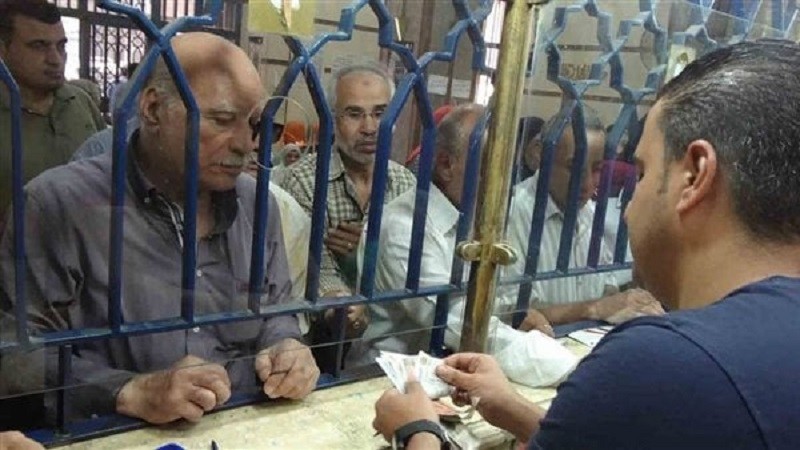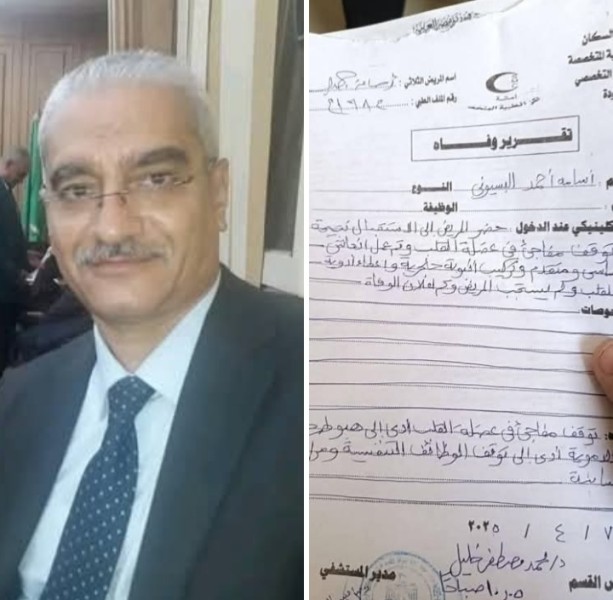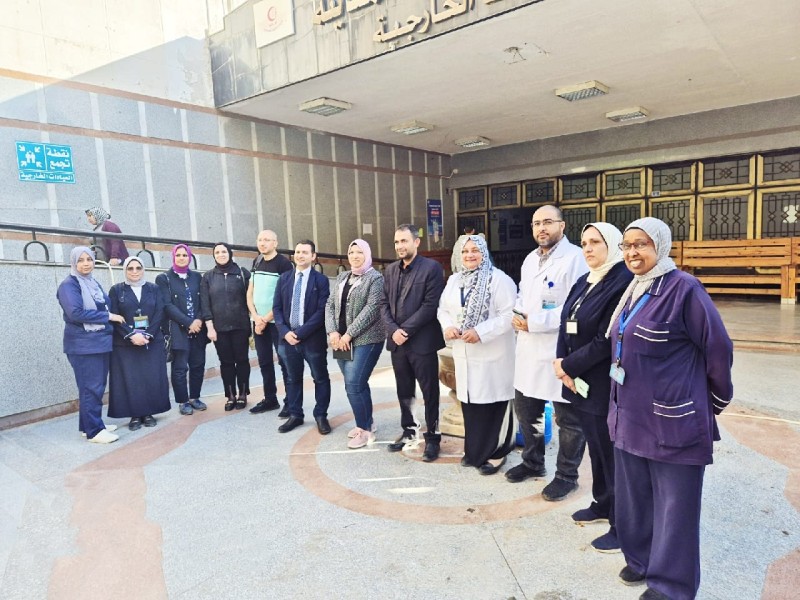63 عامًا علي الحلم العربي الوحدة بين مصر وسوريا والبكاء علي اللبن المسكوب ؟؟

ماذا يحدث اليوم في سوريا؟ يوم ذكري الوحدة مع مصر إنة يوم عظیم علی قلوبنا ،وعقولنا ،ومشاعرنا .
إعلان الوحدة بين مصر وسوريا منذ ” 63 عامًا ” وماذا يحدث اليوم من المحيط الي الخليج ؟ في عصور الردة مستنقع التبعية والتطبيع والخيانة للثوابت الوطنية كانت هذه “الأحداث الكبرى” فيما يبقى من دواعي الفخر القومي أن مصر نأت بنفسها عن أي عمل عسكري لفرض إستمرار دولة الوحدة التي عُرفت بالجمهورية العربية المتحدة بعد الإنقلاب الذي دبرته مجموعة إنفصالية في سوريا عام 1961م ناهيك عن أن مصر العربية لم تقم أبداً بأي عمل عسكري بقصد التدخل في شؤون أي دولة عربية أخرى أو من منطلق أطماع في ثرواتها ومواردها وماذا يحدث الأن من دول مثل تركيا وصاحبة الإرث العثماني الجديد من أطماع منذ حكم أتاتورك العلماني حتي حكم العثمانيون الجدد والتدخل الإيراني .
ورغم المياه الكثيرة والجديدة التي مرت وتمر تحت جسور الزمن فإن هذه الذكرى ستبقى شاهدة على إمكانية تحويل الحُلم العربي الکبیر مازال فی دائرة الفعل بقدر ما تؤكد على أهمية تبني "ثقافة الاصطفاف العربي" في مواجهة تحديات غير مسبوقة الأن علی أرض الواقع والتدخل فی الحرب الداٸرة فی سوریا مازال الحُلم العربي یراوید الکثیر رغم الإخفاقات والنکبات والإنتکاسات ورغم طبول الحرب وأزاز الطاٸرات وجحافل الإستعمار الجدیدفي شمال سوريا وكل سوريا. حتي ولو ذهب البعض إلى أن كلمة "القومية" أو "العروبة" باتت تثير حساسية حتى لدى البعض للآسف من المثقفين العرب أو أصبحت من الماضي ، وللآسف أمس الكنيست الإسرائيلية هناك جدل وخلاف علي إعلان إسرائيل دولة قومية بعد أن جرى ابتذال كلمتي (القومية والعروبة ) في كثير من المواقف المحزنة في شخصية الزعيم / جمال عبد الناصر فإن أحدا لا يمكنه إنكار واقع تجسده الثقافة القومية لأنه "واقع لغوي وجغرافي وتاريخي وروحي".
إن التحديات التي تواجهنا الیوم تستدعي الثقافة القومیة العربیة لمواجهة واحتواء الهيمنة الإقلیمیة والأطماع فی سوریا والعراق ولیبیا.
إن القومیة العربیة شأنها شأن غيرها من الثقافات الأخري ففي خمسينيات القرن المنصرم وجاء في مذكرات مؤسس الدولة العبرانية (بن جوريون ) ماهو أكبر خطر يواجه إسرائيل قال: التیار الجارف للقومیة العربیة يجب العمل علي وقف هذا التیار القومي وتحجیم مصر داخل حدودها الجغرافية ۔ هکذا تم هدم هذا التیار القومي ” بإعلان وفاة جمال عبد الناصر عام 1970 م وتعیش مصر داخل حدودها منذ عام 1979م بتوقیعها معاهدة کامب دیفید .
إن الأحداث التي وقعت بعد الإنفصال تٶکد باليقین عن خصوم الوحدة والحملة الشرسة من الأعلام العراقي والسوري شجعت خصوم ” الناصريين الإقليميين والدوليين ” على محاولة القضاء على ما تبقى من نفوذها الجماهيري فى العالم العربي خاصة في ظل الانقسام الذي وقع في معسكر الثورة بسبب التنافس ، وبين جمال عبد الناصر،وعبد الكريم قاسم، وزعيم الثورة العراقية ، وبين القوميين العرب ،والشيوعيين العرب على زعامة ما كان يعرف آنذاك بـ"حركة القومية العربية" وهو الإنقسام الذي أسفر عن تحالف الإنتهازيين الذين يحكمون (عاصمة الرشيد، مع الإنفصاليين الذين يحكمون عاصمة الأمويين ) ليشكلوا احتياطياً للقوى الرجعية العربية.
لقد استغل عبد الناصر المرحلة بين الإنفصال، وبين بداية عام 1963م في إعادة بناء الجبهة الداخلية المصرية على ضوء الدروس التي انتقلت إليها تجربة الوحدة المصرية - السورية فعقد في عام 1962م – المؤتمر الوطني للقوى الشعبية الذي أسفر عن إعلان ( ميثاق العمل الوطني ) وحققت القوى الثورية التي يقودها اختراقاً مهماً في الجبهة المضادة بقيام الثورة اليمنية في 26 سبتمبر 1962م وتدخل مصر عسكرياً لحمايتها مما أدى إلى وصول قواتها الصلبة إلى "تخوم " مناطق النفوذ البريطاني في اليمن الجنوبي، وما كان يعتبر آنذاك مركز قيادة المعسكر الرجعي، وعلى الرغم من سعي القوى المؤيدة لعبد الناصر في دمشق للقيام بأكثر من محاولة فاشلة لإعادة الوحدة إلا أن جرح الإنفصال كان لا يزال يضغط على أعصاب النظام، ودخلت مصر فی مرحلة البناء والتحدي فی بناء السد العالي، واستعادت علاقتها بالأتحاد السوفيتي الذي فقدته فى ظل تراكم ثلوج الخلاف مع ( الشيوعيين العرب) وبدأ في بناء حیاة سیاسیة من تنظیم منبر سیاسي قطري ( الأتحاد الأشتراكي العربي ) وکانت هناك حالة رجعیة من تیارات ضد الثورة ومشروع الوحدة ،وکان سقوط حُکم الرٸیس / عبد الکریم قاسم ، وحلف بغداد کانت نقطة فاصلة بالتقارب، وحضور وفد رفیع المستوي الی القاهرة بعد اسقاط نظام عبد الکریم قاسم فی احتفال مصر بعیدها الخامس للوحدة مع سوریا کانت الأنباء تآتي من ” عاصمة الأمویین ” دمشق عن سقوط حُکم الإنفصالیین فی سوریا ، لتعود روح الوحدة مرة آخري والحُلم العربي من " عاصمة الرشید بغداد " وتنطلق المظاهرات الجماهيرية فى المدن العراقية والسورية تطالب بإقامة وحدة فورية بين البلدان الثلاثة: 《مصر وسوريا والعراق》، وتصل إلى القاهرة وفود تمثل "بغداد ودمشق" لمناقشة مشروع هذه الوحدة الثلاثية بين الأقطار( الثورية الثلاثة ) التي استمرت ما يقرب من شهر / من 15 مارس حتي 17 من إبريل عام 1963م ، وخلالها تنبه الرئيس عبد الناصر إلى أن كلاً من : الثورتين "العراقية والسورية" ، يقودها فرع من حزب البعث الاشتراكي فى العاصمتين ويخضعان لقيادة قومية واحدة كان يرأسها آنذاك مؤسس الحزب " ميشيل عفلق" وكان من رأي عبد الناصر أنه ليس بينه وبين الفرع العراقي من حزب البعث ما يجعله يتحفظ على إقامة علاقات وحدوية معه بعكس الفرع السورى من الحزب نفسه الذي شارك في إقامة الوحدة بين مصر وسوريا، وشارك في حكم الجمهورية العربية المتحدة لفترة تقترب من عام ونصف العام ثم استقال وزراؤه من حكومة الوحدة، وشنوا ضد حملة دعاية مكثفة، ووقع أقطابه على بيان يؤيد الإنفصال، وبالتالي فلا بد من تصفية حسابات هذه الفترة قبل البدء فى محادثات حول وحدة جديدة. کان من وجهة 《 الزعیم جمال عبد الناصر》وكانت مصر لها تحفظات علی حزب البعث تعتبره مناورات يقوم به الحزب عن أنه لم يكن مخلصاً في سعيه لإعادة الوحدة، وأنه يتظاهر بالحماس لإتمامها لكى یخفف من الضغوط التى قام بها الناصريون في دمشق لإتمام الوحدة فى حين أن هدفه كان الانفراد بالسلطة دونهم بل وكان يروج كذلك لشعار"وحدة دون عبد الناصر".
وما كادت المباحثات تنتهي بتوقیع الوحدة بین "سوریا والعراق ومصر" وفي الاحتفال بالعيد الحادى عشر لثورة يوليو ، 1952م ليعلن" عبد الناصر " أنه لا وحدة مع حزب البعث الفاشيستي، وأن مصر سوف تسحب توقيعها على ميثاق 17 إبريل ليكون هذا الإعلان آخر محاولة جدية لإعادة الروح للوحدة العربية.. وسوف تبقي الذكري عالقة في ماتبقي من الشعوب العربية المؤمنيين بالعروبة والثوابت القومية رغم كل الإنتكسات والنكبات من معظم العالم العربي الذين يعيشون تحت عباءه أمريكا وإسرائيل والتطبيع والخيانة .
رغم خطاينا التي وقعنا جميعا فيها ولكن كانت هناك ثوابت وطنيه، ولدينا قضية واحدة فلسطين التي طعنها كل العرب الأن ، ونحاول قتلها ونتذكر الآن كلمة الضفة وغزة فقط¡¡¡¡¡¡ "محمد سعد عبد اللطيف " كاتب مصري وباحث في الجغرافيا السياسبة ".
What is happening today in Syria? The day I remember unity with Egypt is a great day for our hearts, minds, and feelings
. Declaration of unity between Egypt and Syria "63 years ago" What is happening today from the ocean to the Gulf? In the eras of apostasy, the quagmire of subordination, normalization, and betrayal of national constants, these “major events” remain a matter of national pride that Egypt distanced itself from any military action to impose the continuation of the unity state that was known as the United Arab Republic after the coup that was orchestrated by a separatist group in Syria in 1961, not to mention Arab Egypt has never undertaken any military action with the intention of interfering in the affairs of any other Arab country or out of ambitions in its wealth and resources, and what is happening now from countries such as Turkey and the owner of the new Ottoman legacy of ambitions from the secular rule of Ataturk until the rule of the new Ottomans and Iranian interference. Despite the many and new waters that have passed and pass under the bridges of time, this memory will continue to bear witness to the possibility of transforming the great Arab dream that is still in the circle of action, insofar as it emphasizes the importance of adopting a "culture of Arab alignment" in the face of unprecedented challenges now on the ground of reality and interfering in the ongoing war in the Syria The Arab dream continues to appeal to many, despite the failures, calamities, and setbacks, and despite the drums of war, the shouts of turbulence, and the hordes of neo-colonialism in northern Syria and all of Syria.
Even if some say that the word "nationalism" or "Arabism" has become a sensation even among some, unfortunately among Arab intellectuals, or it has become a thing of the past, and unfortunately yesterday the Israeli Knesset there is controversy and disagreement over declaring Israel a nation-state after my words (nationalism and pan-Arabism) were banished In many of the sad situations regarding the personality of the leader / Gamal Abdel Nasser, no one can deny a reality embodied in the national culture because it is "a linguistic, geographical, historical and spiritual reality.
" The challenges facing us today require the Arab national culture to confront and contain regional hegemony and ambitions in Syria, Iraq and Libya. Arab nationalism is like other cultures, in the 1950s, and in the memoirs of the founder of the Hebrew state (Ben Gurion), what is the greatest danger facing Israel, he said: The sweeping current of Arab nationalism must work to stop this nationalist trend and limit Egypt within its geographical borders. Thus, this nationalist movement was demolished, “by announcing the death of Gamal Abdel Nasser in 1970 CE, and Egypt has lived within its borders since 1979, when it signed the Camp David Treaty. The events that occurred after the separation confirmed with certainty the opponents of unity and the fierce campaign of the Iraqi and Syrian flags encouraged the opponents of the “regional and international Nasserists” to try to eliminate what remained of their public influence in the Arab world, especially in light of the division that occurred in the revolution camp due to competition, and between Jamal Abdel Nasser, Abdel Karim Qasim, the leader of the Iraqi revolution, and among Arab nationalists and Arab communists who led what was then known as the "Arab Nationalism Movement", which is the division that resulted in the alliance of opportunists who rule (the capital of Rashid, with the separatists who rule the Umayyad capital) to form As a reserve for Arab reactionary powers.
Abdel Nasser took advantage of the stage between the separation and between the beginning of 1963 AD in rebuilding the Egyptian home front in light of the lessons that the Egyptian-Syrian experience of unity had transmitted to it, so in 1962 AD he held the National Conference of Popular Forces that resulted in the declaration of the (National Action Charter) and the revolutionary forces achieved It is led by an important breakthrough in the counter-front with the rise of the Yemeni revolution on September 26, 1962 AD, and Egypt intervened militarily to protect it, which led to the arrival of its hard forces to the "frontiers" of the areas of British influence in South Yemen, and what was considered at the time the leadership center of the reactionary camp, despite the efforts of the supporting forces Abdel Nasser was in Damascus to make more than one failed attempt to restore unity, but the wound of separation was still pressing on the nerves of the regime, and Egypt entered the stage of construction and challenge in building the High Dam, and restored its relationship with the Soviet Union, which it lost in light of the accumulation of snow in the dispute with (the Arab Communists) And he began to build political life with the organization of a Qatari political platform (the Arab Socialist Union), and there was a backward state of currents against the revolution and the unity project, and the fall of the rule of President / Abdul Karim Qas M, and the Baghdad Pact was a watershed point for rapprochement, and the presence of a high-level delegation to Cairo after the overthrow of the Abd al-Karim Qassem regime in Egypt’s celebration of its fifth anniversary of unity with Syria. And the Arab dream from "the capital of the Rashid, Baghdad" and mass demonstrations start in the Iraqi and Syrian cities calling for the immediate establishment of unity between the three countries: Egypt, Syria and Iraq, and delegations representing “Baghdad and Damascus” arrive in Cairo to discuss the project of this tripartite unity between the countries (the three revolutionary) that It lasted approximately a month / from March 15 to April 17, 1963, during which President Abdel Nasser alerted that each of the "Iraqi and Syrian" revolutions were led by a branch of the Socialist Baath Party in the two capitals and subject to a single national leadership that was headed at that time by the founder of the party. Michel Aflaq "And it was Abdel Nasser’s opinion that there is nothing between him and the Iraqi branch of the Baath Party that makes him reservations about establishing unitary relations with him, unlike the Syrian branch of the same party that participated in establishing the union between Egypt and Syria, and participated in the rule The United Arab Republic for a period of nearly a year and a half, then its ministers resigned from the unity government, launched an intense propaganda campaign, and its leaders signed a statement in favor of secession, and therefore the accounts of this period must be settled before starting talks about a new unity.
It was from the viewpoint of 《Leader Gamal Abdel Nasser and Egypt had reservations about the Baath Party that it considered it a maneuvering by the party, that it was not sincere in its efforts to restore unity, and that it pretended enthusiastically to complete it in order to relieve the pressure exerted by the Nazarenes in Damascus to complete the unity while His goal was to monopolize power without them, and he was also promoting the slogan "Unity without Abdel Nasser". The talks almost ended with the signing of the unity between "Syria, Iraq and Egypt" and in the celebration of the eleventh anniversary of the July Revolution, 1952 AD for "Abdel Nasser" to announce that there is no unity with the fascist Baath Party, and that Egypt will withdraw its signature on the April 17 Charter, so that this declaration will be the last serious attempt to restore The soul is for Arab unity .. And remembrance will remain stuck in the rest of the Arab peoples who believe in Arabism and national constants, despite all the setbacks and calamities from most of the Arab world who live under the cloak of America and Israel, normalization and betrayal.
Despite our sins, which we all fell into, but there were constants of patriotism, and we have one case, Palestine, which all the Arabs have stabbed now, and we are trying to kill it, and we now remember the word West Bank and Gaza only¡¡¡¡¡¡ "Mohammed Saad Abdul Latif" Egyptian writer and researcher in political geography.
account that you tried to reach does not exist. Please try double-checking the recipient's email address for typos or unnecessary spaces.























